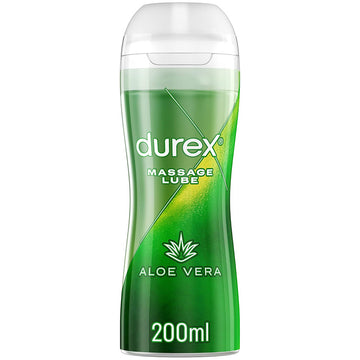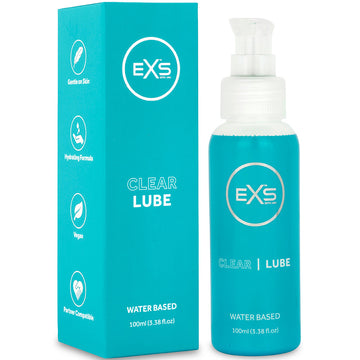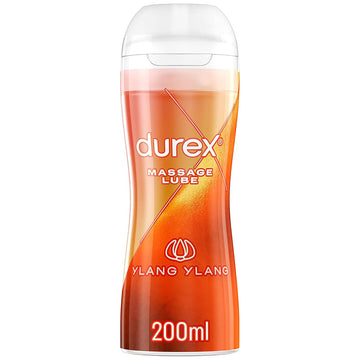Lubricants
When was personal lubricant invented?
Used to intensify pleasure and reduce condom breakage risk during sex, lube as we know them today were invented in the early 20th century. However, just as our ancestors have used primitive versions of condoms, they also used a variety of products to enhance natural lubrication before the invention of the first commercial product.
Historical evidence suggests the Greeks and Romans were really into sex, with both societies open to anal sex and homosexuality.
At the time, both Greeks and Romans used olive oil for pretty much anything, including as intimate lubricant, as mentioned in a document dated around 350 BC. Some couples still use olive oil as intimate lube today. However, oil lubricants are not safe to use with latex condoms or dental dams.
Ancient civilizations in China and Japan also used a natural type of lubricant since the dawns of time. Carrageenan is a water-soluble, gelatinous, and slippery substance extracted from seaweed. This lube is believed to have been used for millennia, much longer than olive oil.
Like olive oil, carrageenan is still used today. Besides being a great lube, this substance is effective against HPV infections, and some brands use it as an ingredient in commercial lubricants.
Clove oil, a common ingredient in anal lubes, has also been used for centuries – specifically to reduce pain and increase pleasure during anal sex.
The first two commercial products that became popular lubes were invented in the late nineteenth and early twentieth centuries.
First came Vaseline, invented by Robert Chesebrough in 1872. Consisting of petroleum jelly, Vaseline was never intended to use for sex, but its slippery consistency and long-lasting effect made it perfect for anal sex. Similarly, glycerine-based KY Jelly was originally marketed as a surgical aid, but it soon became a popular intimate lubricant.
Whilst gynaecologists do not recommend using either petroleum jelly or glycerine-based lubes, today’s market offers a plethora of water-based, silicone-based, and oil lubricants for all purposes and budgets.
Why should I use a personal lubricant?
Typically, intimate lube are intended to use to enhance lubrication during sex. They are particularly useful for combating the symptoms of vaginal dryness or add lubrication to enhance pleasure during anal sex.
However, intimate lubes can be used for many other purposes, even when you don’t lack natural lubrication.
- Intimate lubricant is suitable to use for intimate massages during foreplay
- You can use lube to increase pleasure when masturbating
- Most lubes can be used with sex toys
- Intimate lubricants can increase pleasure and minimise the risk of condom breakage
- Some lubes are suitable to use for full-body massages
What is the best intimate lubricant?
It is hard to say which is the best intimate lube. It all comes down to use and the ingredients each lube contains. That’s why you should consider the type of lube and what the lube is made of before deciding which is the best intimate lubricant for you.
You can choose from three types of personal lubricants:
Water-based lubes
The most popular type, water-based lubricants are mostly hypoallergenic and condom-friendly, safe for most users. Thinner than oil or silicone-based lubes, they don’t feel sticky and are very easy to clean. Water-based lubes also don’t stain fabrics, and most of them are edible, meaning they are safe to use during oral sex. Although easy to clean, we'd still recommend using a specialist sex toy cleaner after using lube with any toy, to prevent the build up of germs and other nasties between uses. Perhaps the only drawback is that they dry out relatively fast, and you’ll have to use a lot of product to achieve the same level of lubrication provided by a silicone-based or oil product.
Silicone-based lubes
Last longer than water-based and are also condom-friendly. A little quantity goes a long way, but the product is stickier and harder to clean. That said, many people prefer silicone or hybrid lubes for anal sex or in cases of severe vaginal dryness. However, silicone lubes may be incompatible with silicone sex toys.
Hybrid lubes
In-between silicone and water-based, hybrid lubes bring the best of both worlds. They last relatively long, are not sticky, and most hybrid lubes are edible. Hybrid lubes are also easy to clean and don’t stain fabrics. Due to their silicone component, they may be incompatible with silicone sex toys.
Oil-based lubes
This category includes a plethora of natural and synthetic lubricants, ranging from food-grade products such as olive oil and coconut oil to petroleum jelly or mineral oil. They last longer than water-based and silicone-based lubricants, are safe for the vagina, and usually edible. However, they are messy to use and may damage latex condoms.
In terms of ingredients, most commercial lubes are safe for people with sensitive skin and are edible. However, here’s a list of commonly used ingredients you should avoid:
- Added sugar: Present in some flavoured lubes, it increases the risk of yeast infection and should be avoided during vaginal intercourse. You may use, however, flavoured lubes with added sugar for oral sex.
- Glycerine: Like added sugar, glycerine may increase the risk of yeast infection and should be avoided during vaginal intercourse.
- Petroleum jelly (aka Vaseline): May alter the vagina’s natural pH and contribute to bacterial overgrowth. The product shouldn’t be ingested either. You should only use Vaseline for its intended purpose, which is moisturising the skin on your lips or body.
- Parabens: A common preservative, parabens may disrupt the normal hormonal function of your body, affecting the functioning of the reproductive system in both men and women. Whilst further studies are needed to confirm the potentially harmful effect, you should steer clear from lubes with parabens, especially if you’re trying to conceive.
- Harsh chemicals: Including propylene glycol, chlorhexidine, benzoic acid, benzene, and benzocaine. These substances can cause irritation and allergic contact dermatitis. Whilst benzocaine is added to some delay lubes and delay condoms, the product may irritate the vaginal lining.
Can I use lubricant when pregnant?
Extra vaginal discharge during pregnancy usually provides sufficient, natural lubrication, however, intimate lubricants are safe to use during pregnancy if you need extra moisture. Because during this period, your cervix is sealed shut, the lube can’t get inside the womb, and it will not harm your baby.
If you do decide to use lube whilst pregnant, avoid products containing parabens, glycerine, or fragrances, as they may irritate your vagina and increase the risk of yeast infections. Lube with additives designed to increase pleasure – such as cooling or warming effect lubes or tingling lubes – should also be avoided.
You should also steer clear of flavoured lubes, especially if they contain added sugar. Like glycerine, added sugars increase the risk of yeast infection.
Water-based lube is your safest choice during pregnancy. Silicone-based and oil-based products aren’t specifically off-limits, but they may alter the vaginal pH, leading to irritation and increasing the risk of infection.
If you only plan to use personal lubricant for foreplay or anal sex whilst you’re pregnant, you can use your favourite lube without restrictions, making sure the product doesn’t contain any harsh chemicals or other potentially harmful ingredients.
Are flavoured lubricants edible?
All types of intimate lubricant flavoured or otherwise are edible. However, this doesn’t mean you should ingest high quantities of product.
Manufacturers use specifically food-grade ingredients to make their lubes because everything that is safe to ingest is also safe enough to come in contact with your private areas. Food aside, you should also know that most flavoured lubes do not contain added sugar, which means they won’t increase the risk of yeast infection.
Besides adding some kink between your sheets, flavoured lubes are an excellent choice to use for oral sex if you want to mask the odour and taste of latex, and they are equally suitable for couples who like food play in bed but who don’t want to stain their sheets or clothes with strawberry juice or chocolate sauce.
What lubricants are safe to use with condoms?
Water-based lubricants are the safest choice to use with condoms. Known as universal lubes, they won’t alter the structure of latex. Most silicone-based and hybrid lubes are also safe to use with latex and non-latex condoms. You should always check the package to ensure the lube you have can be used with latex condoms.
However, you should never use oil lubricants, petroleum jelly, or other types of oils or body creams with latex condoms. These products may alter the structure of latex, resulting in the condom breaking or tearing during sex.
Can lubricant treat vaginal dryness after menopause?
Menopause, alongside other hormonal imbalances, is the main cause of vaginal dryness. Without natural lubrication, sex may be painful, and there is also a higher risk of condom breakage.
Whilst intimate lube cannot treat vaginal dryness, its use can increase pleasure by adding much-needed moisture.
In case of severe vaginal dryness, you may also use a vaginal moisturiser. Although both products add wetness, vaginal moisturiser isn’t an intimate lube and can be used even when you don’t have sex to keep your vagina moist.
During intercourse, many women with severe vaginal dryness find it more satisfying to use both a vaginal moisturiser and intimate lube together.
Which lubricant to use for anal sex?
You may have heard by now that anal sex requires lube. That’s because the anus doesn’t produce enough lubrication for comfortable sex.
In a recent survey, over 50 per cent of respondents declared they use saliva instead of lubricant for anal sex. Whilst this method is widespread, the truth is that saliva can increase the risk of rectal infections due to the transfer of oral bacteria and enzymes to the anus. Saliva also dries out very fast, so you’ll have to constantly add more of it.
Intimate lubricants, on the other hand, are specifically developed for enjoyable sex – regardless of what kind of sex you want to have.
Water-based and silicone-based lubricants are recommended for anal sex, especially if you plan to use a condom. Hybrid lubes also suit the purpose.
If you want to increase pleasure and reduce pain, you may also use a specific anal lube. These lubricants are thicker and longer lasting than regular lube, and some brands also use numbing agents in their formulas. These agents help the anal and rectal muscles relax, enhancing pleasure and making anal sex much more enjoyable.
Can I use lubricants with sex toys?
The vast majority of intimate lubricants on the market are safe to use with sex toys. You must pay attention to the ingredients of the lube and materials the toy is made of, though.
As a rule of thumb, silicone lubricants should not be used with silicone sex toys. The silicone in the lube may react with the silicone in the toy, damaging it. Even if the lube is deemed as safe to use with silicone toys, always do a patch test before using the lube, applying a small quantity of lubricant to a small area of your toy, and waiting overnight.
If the toy smells bad or the silicone layer starts to peel off by the next morning, avoid using your silicone toy with a silicone or hybrid lube.
All other sex toys are usually safe to use with all kinds of intimate lubes. If in doubt, use your sex toys with a water-based product.
Another thing to pay attention to is the toy design. Most sex toys on the market are waterproof, but some rechargeable models may have parts that shouldn’t come in contact with any liquid. If that’s the case, avoid pouring lube on the part that should stay dry at all times.
Where to buy personal lubricant?
You can buy personal lubricant online right here at Condoms.uk. Committed to providing you with the best sexual health products, we store a wide variety of water-based, hybrid, and silicone-based lubricants from popular brands such as Durex, and we always source our products directly from brands or their official distributors in the UK. Browse our range to find the best intimate lubricants for you.




![Loving Joy Slide Water-Based Lubricant [30ml]](http://condoms.uk/cdn/shop/files/loving-joy-slide-lube-water-based-lubricant-30ml_360x.jpg?v=1770392561)


















